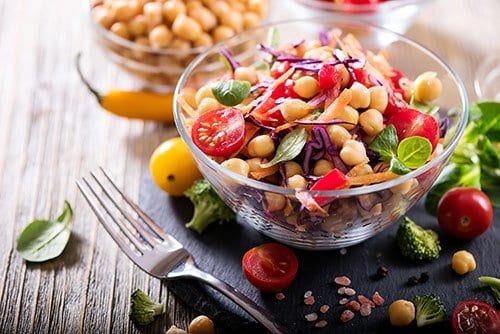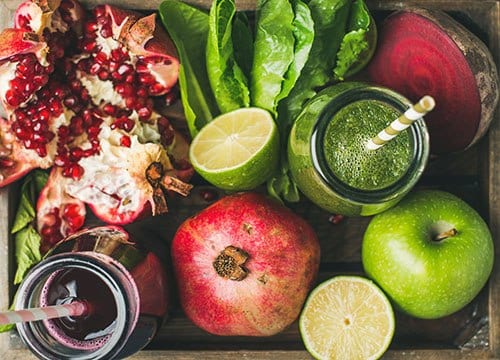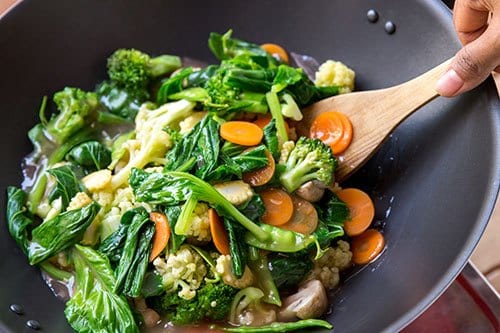Vegetarian meals are packed with flavour and if planned correctly a vegetarian diet will meet all the nutritional requirements needed to keep you healthy and in great shape. Meals commonly include a high protein substitute usually in the form of legumes or a soy based protein such as tofu.
Vegetarian diets vary in what foods they include and exclude, some of the more common variations are:
- Lacto-vegetarian diets exclude meat, fish, poultry and eggs, as well as foods that contain them. Dairy products, such as milk, cheese, yogurt and butter, are included.
- Lacto-ovo vegetarian diets exclude meat, fish and poultry, but allow dairy products and eggs.
- Ovo-vegetarian diets exclude meat, poultry, seafood and dairy products, but allow eggs.
- Vegan diets exclude meat, poultry, fish, eggs and dairy products — and foods that contain these products.



Some people follow a semi vegetarian diet — also called a flexitarian diet — which is primarily a plant-based diet but includes meat, dairy, eggs, poultry and fish on occasion or in small quantities.
The key to a healthy vegetarian diet — like any diet — is to enjoy a variety of foods. No single food can provide all the nutrients your body needs. Soy, walnuts and ground flack-seed contain some of the key fats, protein, omega-threes and iron required for a balanced diet. A great tip is to try taking a recipe that may typically require meat and get creative. Vegetables pack a whole lot more flavor than they usually get credit for, try using grilled eggplant or legumes as a substitute for a delicious surprise.

